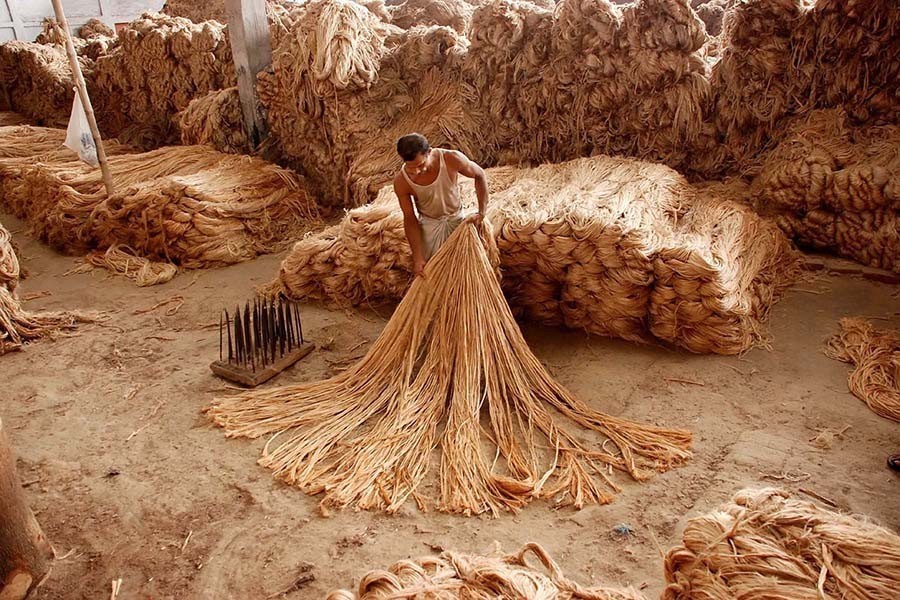Illegal stockpiling of raw jute is believed to have seriously affected jute goods production for both domestic consumption and export. The fallout is strongly felt by millers engaged mostly in manufacturing for export. Export Promotion Bureau data show a decline of 12 per cent in export earnings from jute and jute goods during the first half of the current fiscal year, compared to that of the corresponding period of the previous year. In a statement, the textiles and jute minister has also said that production at jute mills hit a snag due to dearth of raw fibres.
That this dearth is artificially created meant to grab higher prices is pretty clear as most millers allege that following a bumper harvest last year, there is no plausible reason for any shortage of raw jute. The millers also opine that in the absence of any government guideline regarding stock maintenance by traders, the practice of hoarding has been going on for the past few years, and this year it has grown to such a level that they are failing to meet confirmed export orders. This no doubt is an ominous sign as failure to retain established markets creates the opportunity for competitors to access the same, even with inferior products.
It has been gathered that on account of the artificial shortage, prices of raw fibre have shot up to exorbitant level and millers have stopped buying at such prices which they find unaffordable for manufacturing the exportable goods. The current asking price of the raw fibre per maund is Tk500-600 higher than what it should be, according to reports quoting the millers and spinners.
The textile and jute ministry is set to launch a special drive against illegal stocking of raw jute, and also issue guideline regarding permissible level of stocks including the time span. As per the guideline, raw jute dealers will not be allowed to stock more than 1,000 maunds of raw jute for more than one month. The sad part is that like most government interventions on irregularity - which should be pre-emptive rather than reactive - here also the decision to launch the drive and set the guideline for stocking of raw jute has come only after the affected groups raised the issue and the media flagged it as a concern. However, relevant quarters believe if the authorities are earnest and quick in action, things might change for the better. Clearly, it is a case of a gross lack of monitoring on the part of the authorities, and since the practice has been on over the past few years, there was no need to sound the alarm bell to draw their attention. They should have been well prepared to act in curbing illegal hoarding at the expense of export. Under the circumstances, it is expected that the drive must be unwavering-not just to find the wrongdoings and doers, but also to set an example for the future and ensure smooth supply of raw jute for onward processing.


